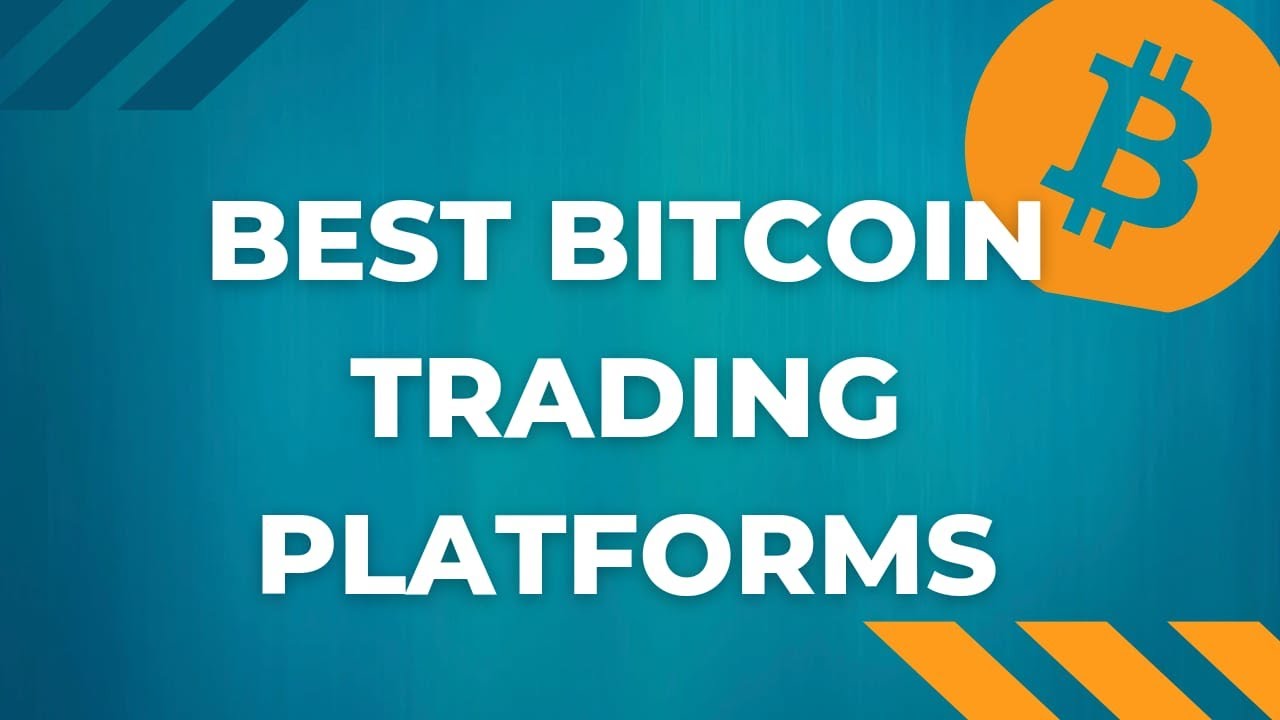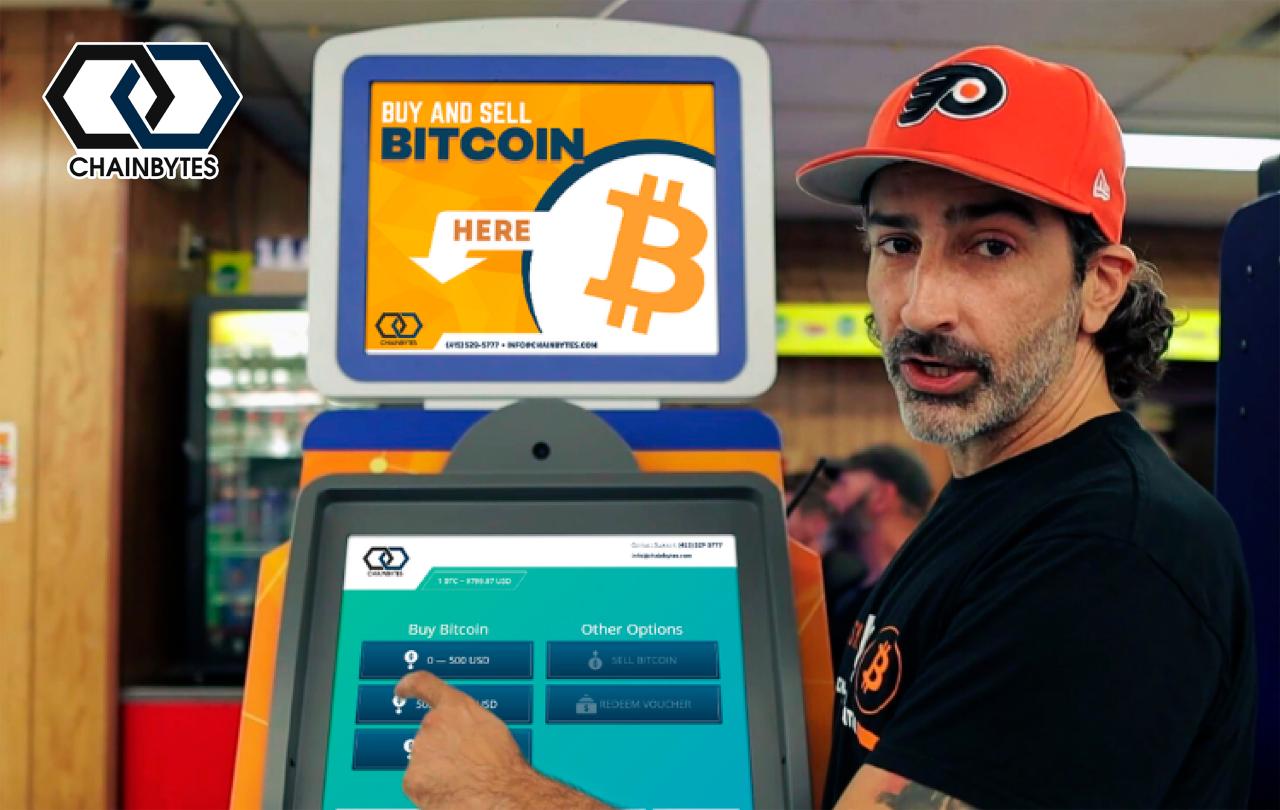Secure ways to sell Bitcoin quickly in Canada: Ever felt like your Bitcoin is trapped in a digital vault, guarded by grumpy gnomes? Fear not, fellow crypto-adventurer! This guide navigates the Canadian landscape of quick and secure Bitcoin sales, revealing the best paths to turn your digital gold into real-world loonies (and toonies!). We’ll explore peer-to-peer platforms, licensed exchanges, even those mysterious Bitcoin ATMs – think of them as the vending machines of the crypto world, but way cooler.
Get ready to ditch the digital dust and embrace the sweet taste of liquidity!
From understanding the nuances of KYC/AML procedures (don’t worry, it’s less scary than it sounds) to mastering the art of choosing a reputable exchange, we’ll arm you with the knowledge to sell your Bitcoin with confidence and speed. We’ll also cover the tax implications – because Uncle Sam (or rather, the CRA) always wants his cut – and offer tips to avoid becoming a victim of those sneaky crypto scams.
Buckle up, it’s going to be a wild ride!
Peer-to-Peer (P2P) Platforms in Canada: Secure Ways To Sell Bitcoin Quickly In Canada
Navigating the wild west of cryptocurrency trading in Canada can feel like panning for gold – exciting, potentially lucrative, but also fraught with peril. Peer-to-Peer (P2P) platforms offer a decentralized alternative to traditional exchanges, but understanding the nuances is key to avoiding a digital gold rush disaster. This section dives into the specifics of using P2P platforms in Canada, highlighting both their advantages and inherent risks.
Canadian P2P Bitcoin Trading Platforms: A Comparison
Choosing the right P2P platform is crucial. Different platforms offer varying levels of fees, transaction speeds, and security features. This table provides a snapshot of three major players in the Canadian P2P Bitcoin market (Note: Fees and transaction speeds can fluctuate; this data represents a general overview and should be verified directly with the platforms):
| Platform Name | Fees | Transaction Speed | Security Features |
|---|---|---|---|
| LocalBitcoins | Variable, typically 1-5% depending on payment method and seller | Varies greatly, from minutes to days depending on payment method and seller responsiveness | Escrow system, two-factor authentication, user reviews and ratings |
| Paxful | Variable, typically 1-5%, often includes payment processor fees | Varies greatly, similar to LocalBitcoins | Escrow system, dispute resolution, identity verification |
| Coinbase (P2P features) | Fees vary depending on payment method, generally lower than dedicated P2P platforms | Generally faster than dedicated P2P platforms due to integration with Coinbase infrastructure | High security standards inherited from Coinbase, including advanced fraud detection |
Know Your Customer (KYC) and Anti-Money Laundering (AML) Procedures
P2P platforms in Canada are subject to stringent KYC/AML regulations. This means you’ll likely need to provide identification documents (passport, driver’s license) and potentially proof of address to verify your identity. The level of verification required varies between platforms, but expect to provide at least some personal information to comply with Canadian financial regulations. Failure to comply can lead to account suspension or even legal consequences.
Think of it as showing your ID before entering a casino – it’s for everyone’s protection.
Risks Associated with P2P Bitcoin Trading in Canada, Secure ways to sell Bitcoin quickly in Canada
While P2P platforms offer convenience, they also carry inherent risks. Scams, unfortunately, are a reality. Buyers might attempt to pay with fraudulent methods, while sellers might disappear with your Bitcoin. Disputes between buyers and sellers are also possible, requiring intervention from the platform’s dispute resolution system.
Mitigating Risks on P2P Platforms
To minimize your risk, consider these best practices:
- Prioritize reputable platforms: Stick to established platforms with robust security features and user reviews.
- Thoroughly vet your trading partners: Check user reviews, ratings, and trading history before engaging in a transaction.
- Utilize escrow services: Most P2P platforms offer escrow services, holding the Bitcoin until both parties confirm the transaction. This protects you from scams.
- Use secure payment methods: Choose payment methods that offer buyer protection, such as verified bank transfers or reputable e-wallets.
- Communicate clearly and professionally: Avoid ambiguous language and maintain a record of all communications.
- Report suspicious activity: If you encounter suspicious behavior, report it immediately to the platform.
Licensed Cryptocurrency Exchanges in Canada

Navigating the world of Bitcoin can feel like traversing a digital jungle, but thankfully, there are paved paths – or, in this case, licensed cryptocurrency exchanges – to make your journey smoother (and less likely to end with you facing a pack of digital wolves). These exchanges provide a regulated environment for buying, selling, and trading cryptocurrencies, offering a level of security and legitimacy that peer-to-peer platforms sometimes lack.
Need to offload your Bitcoin in Canada faster than a Mountie on a donut? Secure options exist, but before you do, consider the bigger picture: Is it worthwhile to invest in Canadian crypto stocks for potential high returns? Check out this insightful article: Is it worthwhile to invest in Canadian crypto stocks for potential high returns?
Then, armed with knowledge (and maybe some extra loonies), you can confidently choose the best, most secure way to sell your Bitcoin quickly in Canada.
Think of them as the reliable taxicabs of the crypto world, unlike those questionable rideshares lurking in the shadows.Choosing the right exchange is crucial, as each offers a slightly different experience. Factors like fees, available cryptocurrencies, and security features all play a role. Let’s explore three prominent players in the Canadian crypto exchange arena.
Licensed Cryptocurrency Exchanges Operating in Canada
Finding a reputable exchange is paramount when dealing with your Bitcoin. Here are three licensed and regulated cryptocurrency exchanges operating in Canada: It’s important to note that the regulatory landscape is constantly evolving, so always verify the current licensing status before engaging with any platform.
- Kraken: A globally recognized exchange with a strong presence in Canada.
- Coinbase: A major player known for its user-friendly interface and robust security.
- Binance.ca: The Canadian arm of the global Binance exchange, offering a wide range of cryptocurrencies.
Selling Bitcoin on Licensed Canadian Exchanges: A Step-by-Step Guide
The process of selling Bitcoin on these exchanges is generally similar, though the specifics might vary slightly. Let’s Artikel the common steps involved, using a hypothetical example:First, you’ll need to create an account on your chosen exchange. This typically involves providing personal information for verification purposes (KYC/AML compliance). Then, you’ll need to fund your account by depositing your Bitcoin.
Once your Bitcoin is in your exchange account, you can place a sell order, specifying the amount of Bitcoin you want to sell and the desired price. The exchange will match your order with a buyer, and once the transaction is complete, your funds will be credited to your exchange account. Finally, you can withdraw your funds to your bank account, usually via wire transfer or other supported methods.
Need to offload your Bitcoin in Canada faster than a caffeinated squirrel? Secure options exist, but choosing the right platform is key. Before you leap, check out this handy comparison: Comparing Avenue Crypto and Wealthsimple Trade for crypto investing in Canada. Understanding fees and transaction speeds will help you sell your Bitcoin swiftly and securely, avoiding any crypto-related heart palpitations.
Remember, each exchange has its own specific procedures, so always consult their help documentation.
Security Measures Implemented by Canadian Cryptocurrency Exchanges
Security is paramount when dealing with your hard-earned Bitcoin. These exchanges employ various measures to protect your assets and personal information.
Need to offload your Bitcoin in Canada pronto? Secure options exist, but remember, due diligence is key! Afterward, reward yourself with a delicious celebratory meal – perhaps something from halal culinary scene, to keep things interesting. Then, get back to the serious business of securing your next Bitcoin transaction in the Great White North!
- Two-Factor Authentication (2FA): Nearly all reputable exchanges require 2FA, adding an extra layer of security by requiring a code from your phone or another device in addition to your password. This makes it significantly harder for unauthorized individuals to access your account, even if they obtain your password.
- Cold Storage: Many exchanges utilize cold storage, which involves storing the majority of their users’ Bitcoin offline in secure, physically protected locations. This minimizes the risk of hacking or theft from online vulnerabilities.
- Other Security Measures: Beyond 2FA and cold storage, exchanges typically employ advanced encryption, regular security audits, and robust monitoring systems to detect and prevent fraudulent activities. They also have sophisticated systems in place to monitor suspicious activity and alert users to potential threats.
Flowchart: Selling Bitcoin on Coinbase
Imagine a flowchart. The first box would be “Create Coinbase Account & Verify Identity.” The next box would be “Deposit Bitcoin into Coinbase Account.” This would lead to “Place Sell Order (Specify Amount & Price).” Then, “Order Matches with Buyer.” Following that, “Funds Credited to Coinbase Account.” Finally, “Withdraw Funds to Bank Account.” Each box connects to the next with arrows indicating the flow of the process.
This visual representation simplifies the steps involved.
Bitcoin ATMs in Canada
So, you’ve got Bitcoin burning a hole in your digital wallet and you need Canadian cash, pronto? Bitcoin ATMs, or “BATMs” as the cool kids call them (don’t worry, we won’t judge if you still call them ATMs), might be your ticket to instant gratification. But are they a safe and speedy option? Let’s dive in.
Bitcoin ATMs in Canada are scattered across the country, but their distribution isn’t exactly even. Think of it like sprinkles on a giant maple leaf-shaped donut – some areas are generously sprinkled, while others are…well, less so. Major cities like Toronto, Vancouver, and Montreal boast a higher concentration of these machines, forming clusters of digital dispensing magic. Smaller towns and rural areas often have far fewer, or none at all.
Geographical Distribution of Bitcoin ATMs in Canada
Imagine a map of Canada. The major cities – Toronto, Vancouver, Montreal, Calgary, and Edmonton – are depicted as brightly lit hubs, each radiating lines outwards representing the presence of Bitcoin ATMs in their surrounding areas. The line density correlates with the number of ATMs – thicker lines indicate higher concentrations. Smaller cities and towns are represented by dimmer lights, with some areas appearing completely dark, signifying the absence of Bitcoin ATMs.
Need to offload your Bitcoin in Canada faster than a Mountie on a donut? Secure platforms are key, of course. But before you do, consider diversifying – check out this insightful piece on What are the top performing Canadian crypto stocks to watch in 2024? to see if a longer-term strategy might be more lucrative. Then, once you’ve made your decision, get back to securely selling that Bitcoin – remember, speed and security are your best friends in the crypto game!
The overall picture showcases a clear concentration in urban centers, reflecting population density and business activity.
Selling Bitcoin at a Bitcoin ATM: The Process
Selling your Bitcoin at a BATM is generally straightforward, but there are a few steps. First, you’ll need to locate a nearby ATM using an online locator (many ATM providers have apps or websites for this). Once you’ve found one, approach it cautiously, checking for any signs of tampering or unusual activity. The process usually involves scanning a QR code from your Bitcoin wallet app, entering the amount of Bitcoin you want to sell, and then receiving Canadian dollars in cash (some ATMs might offer other options, like bank transfers).
The entire process usually takes only a few minutes. Keep in mind that fees are common, and they can vary significantly between machines and providers. These fees are often expressed as a percentage of the transaction value, plus a flat fee. For example, you might pay 5% plus $5.
Security Considerations When Using Bitcoin ATMs
While convenient, using Bitcoin ATMs comes with security risks. Choosing a well-lit, public location during daylight hours is crucial. Avoid ATMs that look damaged, unclean, or situated in secluded areas. Before initiating a transaction, carefully inspect the machine for any signs of tampering, such as loose parts or unusual wiring. Be mindful of your surroundings and avoid displaying large amounts of cash.
Remember, just like any cash transaction, you’re responsible for your own security. Also, be wary of scams – some ATMs might be rigged to steal your Bitcoin or personal information. Using reputable ATM providers is your best bet to mitigate risk. Always review the fees beforehand to avoid any surprises.
Selling Bitcoin Through Brokers or Financial Advisors

So, you’ve amassed a digital fortune in Bitcoin and are ready to cash in? While P2P platforms and exchanges are popular options, selling your Bitcoin through a licensed broker or financial advisor offers a different, potentially smoother, ride. Think of it as trading in your cryptocurrency for the comforting familiarity of Canadian dollars, with the added benefit of professional guidance.Selling Bitcoin through a licensed broker or financial advisor in Canada involves navigating a slightly more formal process than using a P2P platform or exchange.
Typically, you’ll need to open an account with the broker or advisor, providing the necessary identification and financial information. Once your account is verified, you’ll instruct your broker to sell your Bitcoin. The proceeds will then be deposited into your linked bank account, usually within a few business days, depending on the broker’s processing times. This method avoids the direct handling of cryptocurrency, which can be a significant advantage for those less comfortable with the technical aspects of digital currency trading.
Need to offload your Bitcoin in Canada pronto? Several reputable exchanges offer speedy sales, but remember, security is paramount! Before you jump in, though, consider your long-term crypto strategy – check out this guide on What are the best cryptocurrencies to buy in Canada right now for long-term investment? to see if holding onto some digital gold is a better bet.
Then, once you’ve planned your crypto future, you can confidently sell your Bitcoin quickly and securely in Canada.
Broker and Advisor Fee Structures
Different brokers and financial advisors will have varying fee structures. Some might charge a flat fee per transaction, while others might use a percentage-based model, charging a certain percentage of the total sale value. It’s crucial to compare these fees carefully before choosing a service provider. Factors such as the volume of Bitcoin being sold and the broker’s reputation will influence the final cost.
For example, a high-volume trader might negotiate lower percentage fees, while a smaller transaction might be better suited to a flat-fee structure. Always request a detailed breakdown of all fees before proceeding. Don’t be shy – asking questions is part of being a savvy investor.
Advantages and Disadvantages Compared to Other Methods
Let’s compare selling Bitcoin through brokers/advisors against the alternatives.
Need to offload your Bitcoin in Canada faster than a caffeinated squirrel? Secure options abound, but maximizing your profits requires choosing the right platform. For savvy day traders aiming for quick gains, check out the Best crypto trading platforms in Canada for day trading and short-term gains. Once you’ve picked your platform, selling your Bitcoin securely becomes a breeze – just remember to always double-check those transaction details!
| Feature | Brokers/Advisors | P2P Platforms/Exchanges |
|---|---|---|
| Ease of Use | Generally simpler for those less tech-savvy; more hands-off. | Can be more complex, requiring a higher level of technical understanding. More user responsibility. |
| Security | Often higher due to regulatory oversight and established security protocols. | Security can vary widely depending on the platform; potential for scams on less reputable P2P sites. |
| Regulatory Compliance | High; brokers and advisors are subject to strict Canadian financial regulations. | Compliance varies; some exchanges are regulated, while others operate in less regulated spaces. |
| Fees | Can be higher than some P2P platforms or exchanges, especially for smaller transactions. | Fees can be lower, but often depend on factors like payment method and transaction speed. |
Choosing the right method depends on your individual needs and comfort level with technology and risk.
Tax Implications of Selling Bitcoin in Canada

Selling Bitcoin in Canada isn’t just about getting your hands on some sweet, sweet Canadian loonies; Uncle Sam (or rather, the Canada Revenue Agency) wants a piece of the action too. Understanding the tax implications is crucial to avoid a hefty bill – and possibly some unwanted attention from the taxman. Let’s dive into the fascinating world of Bitcoin and Canadian tax law.
It’s less exciting than mining Bitcoin, but considerably more important.
Capital Gains Tax on Bitcoin Sales
In Canada, Bitcoin is considered a capital property. This means any profit you make from selling it is subject to capital gains tax. However, only 50% of your capital gain is taxed, thanks to the magic of the capital gains inclusion rate. This is a significant difference compared to regular income, which is taxed at your full marginal tax rate.
To calculate your capital gains tax, you first need to determine your capital gain. This is simply the difference between your proceeds of disposition (the amount you sold your Bitcoin for) and your adjusted cost base (ACB). Your ACB is essentially what you originally paid for the Bitcoin, plus any commissions or fees incurred during its acquisition.
Calculating Capital Gains Tax: A Hypothetical Example
Let’s say you bought 1 Bitcoin for $20,000 CAD in 2021 (including fees). Then, in 2024, you sold it for $40,000 CAD. Your proceeds of disposition are $40,000. Your adjusted cost base (ACB) is $20,000. Your capital gain is therefore $40,000 – $20,000 = $20,000.
Since only 50% of the capital gain is taxable, this means you’ll be taxed on $10,000. The actual tax you owe will depend on your marginal tax bracket. For example, if you are in the 20% tax bracket, you would owe $2,000 in capital gains tax ($10,000 x 0.20). It’s always wise to consult a tax professional for personalized advice, as tax brackets and laws can change.
Importance of Accurate Record-Keeping
Think of your Bitcoin transactions as a meticulously crafted financial novel. The CRA is the editor, and they expect impeccable grammar and punctuation (i.e., accurate record-keeping). Keeping detailed records of all your Bitcoin transactions – purchase dates, amounts, fees, and sale dates – is absolutely vital. This includes any trades made on exchanges, P2P platforms, or even Bitcoin ATMs.
Failing to maintain proper records can lead to headaches, penalties, and possibly even legal repercussions. Consider using spreadsheet software or dedicated cryptocurrency tax software to track your transactions effectively. Think of it as an investment in peace of mind (and avoiding a potential audit!). A well-organized record-keeping system will not only simplify your tax filing but also provide valuable insights into your cryptocurrency investments.
Ending Remarks

So, there you have it – a whirlwind tour of the Canadian Bitcoin selling scene! Whether you prefer the anonymity of peer-to-peer platforms, the regulated security of licensed exchanges, or the quirky convenience of Bitcoin ATMs, you now possess the knowledge to navigate this exciting (and sometimes slightly bewildering) world. Remember, always prioritize security and do your research. Happy selling, and may your Bitcoin journey be filled with profits (and minimal tax headaches!).
Now go forth and conquer the Canadian crypto market!
